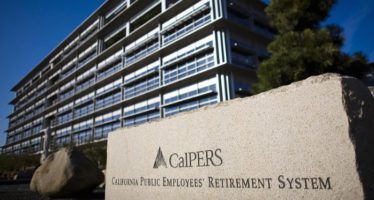CPUC slaps Uber with big fine
 To play in California, Uber must pay.
To play in California, Uber must pay.
“The California Public Utilities Commission agreed last Thursday with a judge’s recommendation to fine Uber $7.6 million for failing to meet data reporting requirements in 2014,” the Los Angeles Times reported. “Uber will appeal the decision, but has agreed to pay the fine to avoid a 30-day suspension of its license in its home state.”
With a valuation in excess of $60 billion, the fine alone posed little challenge to Uber’s cruise toward ever-greater market dominance. But lawmakers and regulators around the world have littered its road to success with obstacles, repeatedly calling into question the viability of its business model. California, which has stayed at the forefront of technological change and aggressively regulated automotive companies like Volkswagen who ran afoul of the rules, has been seen as both a bellwether and a must-win jurisdiction for Uber.
Broad opposition
The company’s home state hasn’t always cooperated. This month’s fine arose from a protracted dispute reaching through several branches of state government. “In June, a state labor commissioner decided that an Uber driver was an employee and not a contractor — a ruling that was non-binding, but could set a precedent for drivers to ultimately demand more perks and pay. A month later, an administrative law judge recommended that the San Francisco company be fined and suspended from operating in California for the failure to report driver data,” the Times noted. “Uber filed an appeal last August, and a modified decision was made public Wednesday, recommending an even higher fine of $7,626,000, plus a $1,000 contempt fine.”
In addition to penalizing the company, California wanted to threaten it as well. As the Guardian reported, “State lawyers recommended a ruling that gave Uber 30 days to pay the fine or else lose the ability to operate in California.” With little choice, Uber decided to pony up the funds to the California Public Utilities Commission, which oversees state businesses devoted to transportation.
A spate of suits
The big-ticket fine joined a long list of legal troubles Uber has devoted substantial resources to navigating. “In an ongoing civil suit against Uber, the district attorneys of San Francisco and Los Angeles have claimed that ‘systemic failures’ in the company’s background-check process have led to registered sex offenders, identity thieves, burglars and a convicted murderer becoming drivers for the service,” as the Wall Street Journal observed. “The suit claims Uber misled consumers about the effectiveness of background checks and seeks a permanent injunction of the business.” Rather than using a service called Live Scan, employed by many California taxi companies, Uber uses Checkr, which matches convictions to individuals based on an analysis of addresses associated with their name, the Journal added.
At the same time, Uber drivers were recently notified of their inclusion in a class action lawsuit against the company. “Uber agreed to the terms of a $1.8 million suit alleging it inappropriately charged customers an ‘airport fee toll’ late last year,” according to TechCrunch. “The lawsuit, filed in November 2015, accused Uber of charging customers the ‘airport fee toll’ several months before the airport required it, letting drivers keep the fee instead. The lawsuit, which affects an estimated 355,000 customers, was a surprise to many folks who had no idea they were involved.”
That news helped sour a new victory Uber scored at Los Angeles International Airport, a huge source of potential business. Officials okayed Uber pickups at the airport “exactly one month after Lyft launched at LAX, which was originally announced by LA’s Mayor Eric Garcetti,” as TechCrunch reported separately. “Uber and Lyft had battled for months with the airport and the L.A. City Council to reach an agreement that allowed pickups at the airport.”
Related Articles
UC still funds pro-union think tank
AUGUST 16, 2010 By ANTHONY PIGNATARO Despite well-publicized tuition hikes and other various increases in student fees, the University of
Rising pension costs threaten California school funding
In a shock critics had warned against, Golden State schools discovered that their nation’s largest pension system, CalPERS, was on
Chamber warns arbitration bill will kill jobs
When you take a job, should you be required to waive your right to have a future employment dispute adjudicated




